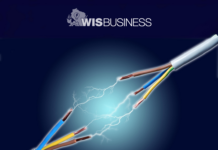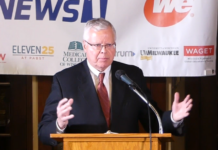The state Public Service Commission is expected to make a decision early next month on a case related to third-party financing for small solar projects in Wisconsin.
That’s according to Nick Hylla, executive director of the Midwest Renewable Energy Association. This organization is petitioning the PSC to declare third-party financed “distributed energy resources” shouldn’t be regulated as public utilities in the state.
Renewable energy advocacy group Vote Solar has a similar petition before the commission, which is grouping them together for public hearings.
According to an overview from the Environmental Protection Agency, third-party solar financing can include solar leases or purchase power agreements.
Under the lease model, customers sign a contract with an installer or developer and then pay to use the solar system over a certain time period rather than paying for the power it generates. Under a purchase power agreement, the solar system offsets the customer’s electric utility bill and the developer sells the power to the customer at a fixed rate that’s usually lower than what the local utility offers, the EPA says.
In a recent interview, Hylla explained the commission had previously issued guidance that third-party financing for these projects was illegal. He says that guidance has been used by utilities to prevent third-party financing for solar systems “by a number of entities” in Wisconsin.
The MREA has argued that guidance was “outside of the law” and the PSC doesn’t have statutory authority to regulate how customers finance rooftop solar projects, Hylla said.
“We’ve laid out the facts in front of the commission, and we’d like the commission to do their job and interpret state law and make a declaratory ruling based on their interpretation whether they think they have the jurisdiction to regulate the way a customer finances any kind of energy asset on their own home or business,” he said.
The MREA effort is supported by a number of organizations in the state including the League of Wisconsin Municipalities, the Sierra Club, Clean Wisconsin, the Milwaukee Metropolitan Sewerage District and others. Much of their arguments focus on the potential for expanding opportunities for more renewable energy options in the state.
But groups representing union labor and electric cooperatives have submitted opposing comments to the PSC raising concerns about the petition.
The Wisconsin Electric Cooperative Association, which represents the state’s 24 electric distribution cooperatives, argues “third-party owners will have no obligation to provide safe, reliable energy at fair prices to consumers even though they are providing an essential service.”
The association says cooperative members who participate in such third-party financing may pay more for electricity “than they expect or than they otherwise would.” And it expresses concern that “such a significant change” to the electric industry is going before a state agency rather than the Legislature.
Meanwhile, the Wisconsin Building Trades Council, the North Central States Regional Council of Carpenters, the Wisconsin Laborers District Council and International Union of Operating Engineers Local 139 in Pewaukee issued a joint comment to the PSC urging commissioners to reject the MREA and Vote Solar petitions.
“The Commission’s past rationale for declining to issue declaratory rulings such as those sought in the petitions is still apt,” they wrote. “Doing so would substantially change public policy and how power is generated, consumed and regulated in Wisconsin.”
In a separate submission, North Central States Regional Council of Carpenters General Counsel Burt Johnson says third-party solar developers working on projects in Minnesota — where such arrangements are allowed — have often relied on a “lower paid, lower skilled, transient workforce” made up of non-union workers.
“Because third-party solar developers typically employ transient, non-union workers to do their installations, third-party ownership arrangements have detrimental effects on union workers and local workforces,” he wrote.
See more on the Vote Solar petition here: https://bit.ly/3DvJWyH
See more on the MREA petition: https://bit.ly/3NtLuhe
–By Alex Moe






